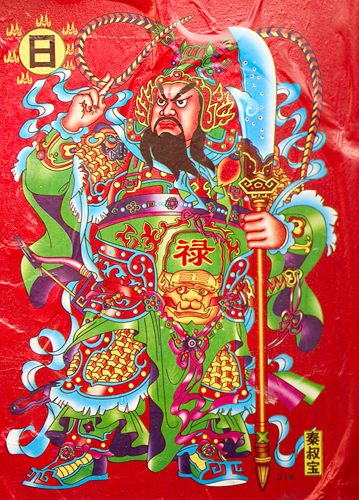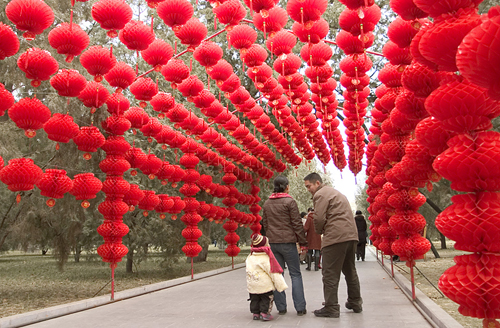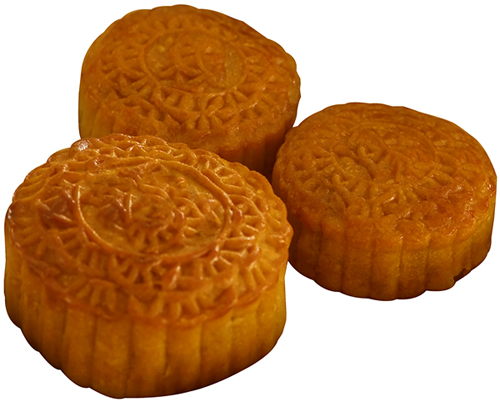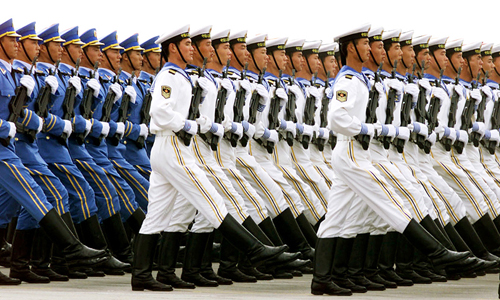Chinese New Year Also
known as Spring Festival, Beijing’s favorite holiday is celebrated with
a cacophony of fireworks, let off night and day across the city. There
are also temple fairs with stilt-walkers, acrobats, and fortune-tellers.
Everyone who can heads for their family home, where gifts are exchanged
and children are kept quiet with red envelopes stuffed with cash so
adults can watch the annual Spring Festival Gala on national television.

Guardian hung on doors to welcome Chinese New Year
Lantern Festival Coinciding
with a full moon, this festival marks the end of the 15-day Spring
Festival celebrations. Lanterns bearing auspicious characters or in the
shape of animals are hung everywhere. It is also a time for eating the
sticky rice balls known as yuanxiaio.

Lantern Festival
Tomb-Sweeping Festival Also
known as Qing Ming, this festival is also a public holiday. Chinese
families visit their ancestors’ graves to tidy them up, make offerings
of snacks and alcohol, and burn incense and paper money. International Labor Day A
reminder that China is still a Communist nation, Labor Day is
celebrated with a week-long holiday, which marks the start of the
domestic travel season. Shops, offices, and other businesses close for
at least three days, and often for the whole week. Don’t plan on doing
any out-of-town travel during this time. Dragon Boat Festival (Duanwu Jie) Drums
thunder and paddles churn up the water as dragon-headed craft compete
for top honors. The festival remembers the honest official, Qu Yuan,
who, the story goes, drowned him-self 2,500 years ago after banishment
from the court of the Duke of Chu. Shocked citizens threw rice cakes
into the water to distract the fish from nibbling on his body, hence the
wholesale consumption of these delicacies on this date every year. Mid-Autumn Festival Also
known as the Harvest or Moon Festival, this is traditionally a time for
family reunions and for giving boxes of sweet and savory mooncakes (yuebing).

Mooncake
Cricket-fighting Cricket
season in Beijing has nothing to do with the genteel English game. The
Chinese version involves ruthless antennae-on-antennae action as
cricket-fanciers goad their insects into battle in the plastic bowls
that serve as gladiatorial arenas. Once the favorite sport of emperors,
it now takes place in backstreets all over town. National Day Marking
the anniversary of Mao’s 1949 speech in which he declared the
foundation of the People’s Republic. Crowds turn out to watch massed
parades of high-kicking soldiers, and a jam-packed Tian’an Men Square is
colored red by a sea of hand-held, waving flags.

National Day parade
Christmas Day Not
a traditional Chinese holiday but the festivities have been adopted via
Hong Kong, which means that there is a stress on the commercial aspect.
High-street stores are bedecked with Shengdan Laoren, the Chinese version of Father Christmas. New Year’s Day Although
overshadowed by Chinese New Year, which takes place soon after, Western
New Year is still a public holiday throughout China.
Top 10 Annual Cultural Events
Chaoyang Festival Street theater, live music, circus, and dance. Chaoyang Park Late Jan, early Feb
Beijing International Theater Festival A month of musicals, operas, puppet shows, and dramas. Meet In Beijing Performance festival with an unpredictable mix of Chinese and foreign theater acts. Midi Music Festival Home-grown punk, metal, rock, and dance. Venues and dates change. Art Beijing Contemporary art fair with exhibitors from around the globe. Beijing International Book Fair Three days for the trade and two days of public participation. Beijing Pop Festival International name acts supported by local talent. Beijing Biennale Chinese and international artists showcase their work. DIAF The former Da Shan Zi Art Festival, now known as the Dangdai International Art Festival. Beijing International Music Festival Month-long extravaganza of soloists and orchestras. Various venues
|